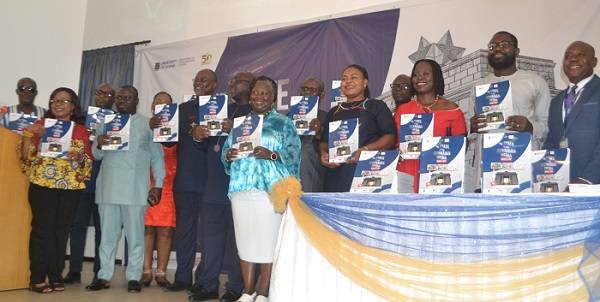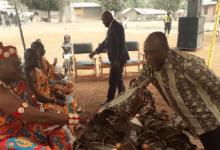
A document to serve as a resource instrument for the Ghanaian Media has been launched in Accra.
It is to also serve as a guide for media practitioners, media houses and owners.
Dubbed; the state of the Ghanaian Media report, it includes the conduct of a series of research projects with a view to assessing how the Ghanaian media is faring on different indicators and what needs to be done to improve it.
The launch formed part of the Department of Communication Studies of the University of Ghana 50th Anniversary.
In a keynote address, Professor Amin Alhassan, Director-General of the Ghana Broadcasting Corporation said it was time the media had a guide to control its activities.
He explained that the report led the way in identifying fault lines in the media and proffering solutions to them saying “as the media is often hailed as critical to the country’s democratic success, it faces fundamental challenges.”
Prof.Alhassan noted that a poorly paid journalist was a threat to society and breeds an ecosystem characterised by bad journalism adding that“managers and employers of journalists must offer to pay them well to enable them to work comfortably as the fourth estate of governance.”
He mentioned low remuneration as one of the challenges media practitioners’ faced, which according to him, when effectively addressed, would go a long way in promoting best journalistic practices, good governance and socio-economic development of the nation.
Speaking about social media gradually taking over the traditional media, Prof. Alhassanindicated that the digital space could hardly be regulated and that the guidelines would help sharpen the media take up.
Prof. Audrey Gadzekpo, Department of Communication Studies UG said the report confirmed the centrality of media and the practice of journalism in promoting the public interest in the furtherance of democratic development.
“Collectively, the seven articles contained in the report provided evidence on the role of the media in development and the state of affairs regarding key media indicators such as professionalism, financial viability, and conditions of service, safety of journalists training and capacity building and ownership,” she said.
She said “this statement is made at the back of little reward received by journalists in the country, even though the media is referred to as the Fourth Estate of the Realm, salary differentials that exist between the ‘first, second and third realm,’ that is to say, the Executive, Legislature and Judiciary as compared to the media, is upsetting indeed.
“The salaries of journalists’ pales into insignificance when compared with allowances, end of service benefits and per diem of most workers in the executive, legislature and judiciary,” Prof.Gadzekpo bemoaned.
According to the Head of the Department of Communication Studies, DrAbena A. Yeboah-Banin, the biennial project formed part of the Department’s efforts to lead the way in identifying fault lines in the media, and proffering solutions to them.
BY BENEDICTA GYIMAAH FOLLEY







